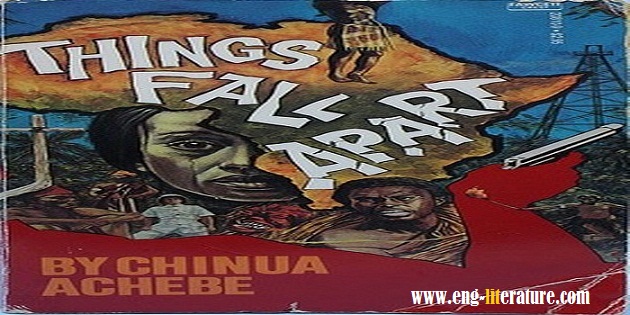Things Fall Apart Review
Nobel
Laureate, Achebe’s novel, Things Fall Apart is regarded
the alpha of Anglo-African literature. It is the book that brought the story
from the ‘Dark Continent’ through the voice of an educated African through
which he showed the conflict between African values and the advent of
Christianity in Nigeria.
First
published in 1958 – the year after Ghana became the first African nation to
gain independence, as Britain, France and Belgium started to recognise the end
of colonialism in Africa and began their unseemly withdrawal – Chinua Achebe's
debut novel concerns itself with the events surrounding the start of this
disastrous chapter in African history.
Chinua
Achebe's Things Fall Apart is a beautiful novel - as an extended
metaphor for African despoliation, life and politics it works wonderfully.
Beautiful is, perhaps, a strange word to describe this essentially melancholic
novel but whilst Things Fall Apart is a sorrowful affair it is never a
despondent one. The scenes from the life of Nigeria's Ibo society are painted
with an assured, uplifting clarity and they resonate brightly - and long.
Okonkwo is an excellent, wonderfully human, central character: strong;
headstrong; wilful; proud. A traditionalist, he is acutely aware of the
pitfalls of forgetting the past but he is blind to the absurdities, cruelties
and sheer backwardness of certain of his tribe's customs and of his own, sometimes
outrageous, actions.
Okonkwo
is an ambitious man within the Umuofia clan of the Igbo tribe. Determined to be
a lord, he observes its rules, even the harshest of them, though that
observance will eventually drive away his own son.
Achebe
guides us through the intricacies of Igbo culture, its profound sense of
justice, its sometimes murderous rules, and its noble and harmful machismo.
By
the time the British colonial administrator arrives towards the end of the book
to dismiss the natives as savages, we know how profoundly mistaken that word
is. Everything that Okonkwo holds dear becomes threatened after an accidental
shooting. Okonkwo must flee with his family from his beloved village for seven
years, losing the life that he worked so hard to gain.
He
gets through his seven years of exile only to go back home and discover that
everything has changed. White missionaries have come to convert Africa to their
ways.
It
portrays the collision of African and European cultures in people’s lives.
Okonkwo, a great man in Igbo traditional society, cannot adapt to the profound
changes brought about by British colonial rule.
Yet,
as in classic tragedy, Okonkwo’s downfall results from his own character as
well as from external forces.
Achebe’s
is an essentially melancholic novel and an extended metaphor for African
despoliation, life and politics. Things Fall Apart is a sorrowful affair but
not a despondent one.
The
scenes from the life of Nigeria’s Igbo society are painted with an assured,
uplifting clarity and they resonate brightly - and long. Okonkwo is an
excellent, wonderfully human, central character: strong; headstrong; willful;
proud.
A
traditionalist, he is acutely aware of the pitfalls of forgetting the past but
he is blind to the absurdities, cruelties and sheer backwardness of certain of
his tribe’s customs and of his own, sometimes outrageous, actions.
Achebe
shows how African cultures vary among themselves and how they change over time.
Things
Fall Apart translated into 50 languages, taught in high schools all over the
world, was the first ‘African’ book that was written with the real voices of
Africans, hence giving a correct representation of the real Africa.
Achebe
said of his first novel that Things Fall Apart was ‘an act of atonement with my
past, the ritual return and homage of a prodigal son.’
He
wished to teach his (African) readers that ‘their past with all its
imperfections was not one long night of savagery from which the Europeans
acting on God’s behalf delivered them’.
The
first part of a trilogy, Things Fall Apart was one of the first African novels
to gain worldwide recognition: half a century on, it remains one of the great
novels about the colonial era. This book sings with the terrible silence of
dead civilizations in which once there was valor.
~~~~~*~~~~~












0 Comments
Post a Comment